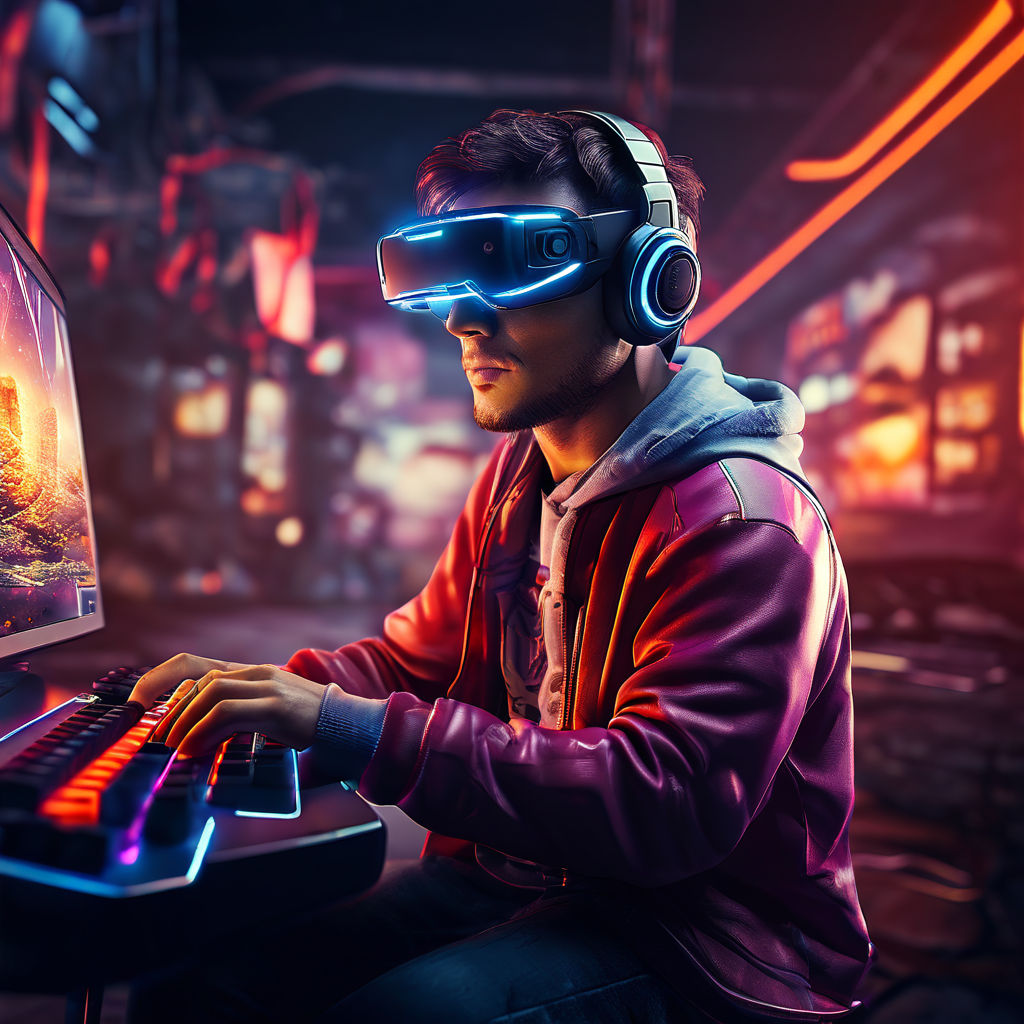
The Future of Gaming: Trends to Watch in the Next Decade
The gaming industry is poised for significant transformation in the coming decade, driven by technological advancements, evolving consumer behaviors, and innovative gameplay experiences. This article explores key trends shaping the future of gaming, from emerging technologies to evolving industry dynamics and the impact on gaming culture.
1. Rise of Cloud Gaming
Cloud gaming is revolutionizing how games are accessed, played, and distributed. Streaming platforms like Google Stadia, Microsoft xCloud, and NVIDIA GeForce Now eliminate the need for high-end hardware, allowing players to stream games directly to their devices. The future of cloud gaming lies in improved latency, broader game libraries, and seamless cross-platform experiences.
2. Augmented Reality (AR) and Virtual Reality (VR) Integration
AR and VR technologies enhance immersive gaming experiences by blurring the lines between virtual and physical worlds. From VR headsets to AR-enabled mobile games, these technologies offer realistic simulations, interactive storytelling, and enhanced spatial awareness. The next decade will see AR and VR adoption expand, driven by advancements in hardware, content creation, and affordability.
3. Artificial Intelligence (AI) in Game Development
AI is transforming game development processes, from procedural content generation to adaptive gameplay mechanics and AI-driven NPCs (non-playable characters). Machine learning algorithms optimize game environments, enhance player interactions, and personalize gaming experiences based on player behavior and preferences. AI-powered game design tools will empower developers to create dynamic, responsive worlds that evolve with player input.
4. Esports and Competitive Gaming
Esports continue to rise in popularity, attracting millions of viewers and generating significant revenue through tournaments, sponsorships, and media rights. The next decade will witness the professionalization of esports leagues, enhanced production values, and increased global participation. Esports arenas, dedicated training facilities, and mainstream media coverage will solidify esports as a major entertainment industry.
5. Cross-Platform Gaming and Social Integration
Cross-platform gaming allows players on different devices to play together seamlessly, breaking down barriers between console, PC, and mobile gaming communities. Social integration features, such as cross-platform chat, shared progress, and multiplayer matchmaking, enhance collaboration and community engagement. The future of gaming lies in interconnected ecosystems where players can connect, compete, and collaborate regardless of their chosen platform.
6. Sustainability and Ethical Gaming Practices
As the gaming industry grows, so does its responsibility towards sustainability and ethical practices. Initiatives to reduce carbon footprint, minimize electronic waste, and promote diversity and inclusion within game development teams are gaining traction. Ethical considerations in gaming include fair monetization models, responsible microtransactions, and safeguarding player well-being through balanced gameplay experiences.
7. Blockchain and Digital Ownership
Blockchain technology offers decentralized solutions for digital asset ownership, in-game economies, and player-driven marketplaces. NFTs (non-fungible tokens) enable players to own unique game assets, trade virtual items securely, and participate in decentralized gaming ecosystems. The integration of blockchain in gaming promises transparent, verifiable ownership rights and new revenue streams for developers and players alike.
8. Personalized Gaming Experiences
Advancements in data analytics, player profiling, and adaptive gameplay algorithms enable personalized gaming experiences tailored to individual preferences and skill levels. Dynamic difficulty adjustment, content recommendation engines, and AI-driven narrative choices enhance player immersion and satisfaction. The future of gaming lies in delivering bespoke experiences that resonate with diverse player demographics and play styles.
Conclusion
The future of gaming is characterized by innovation, inclusivity, and immersive experiences that transcend traditional boundaries. From cloud gaming and AR/VR integration to AI-driven gameplay and esports growth, the next decade promises to redefine how we play, connect, and interact within virtual worlds. Embracing technological advancements, ethical standards, and community-driven initiatives will shape a gaming landscape that is vibrant, diverse, and limitless in its potential for creativity and engagement.
This article explores the transformative trends shaping the future of gaming, appealing to gamers, industry professionals, technology enthusiasts, and anyone interested in the evolution of interactive entertainment in the digital age.